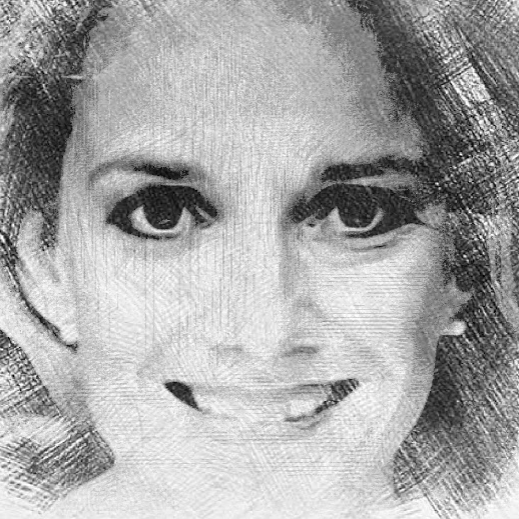
Granted: The idea needs getting used to – a camera that, for example, offers all-round surveillance at home. While current Smart Home components depend on a continuous internet connection, the camera system of the Chemnitz-based start-up 3dvisionlabs GmbH– in which a single sensor records a complete room in 3D – relies on an independent solution. The Chemnitz-based company integrated the powerful evaluation hardware directly into the device. Because the founders Lars Meinel, Michel Findeisen and Markus Heß are aware of the necessary protection of privacy. “… our Development Kit shows: HemiStereo is Privacy-by-Design. Through the integration of 3D-measurement and the evaluation of the sensitive image data in the device itself, the privacy of the user is protected considerably better than when a cloud service is used”, Meinel explains the innovative system. The real-time evaluation on site takes place in a compact edge computing device, using algorithms with artificial intelligence (AI). This means that at least the raw image data does not end up on the internet. This is what makes this analysis system for capturing spaces and human actions so convincing.

“Self-Determined Aging” as a Source of the Idea
The three young entrepreneurs were previously involved in several industrial and scientific research projects at Chemnitz University of Technologyas scientific employees of the Chair of Digital and Circuit Technology (Faculty of Information and Electrical Engineering). The idea for the 3D camera system arose in connection with the development of supporting technologies for healthy and self-determined aging. Here the scientists recognized the problem, that many of the conventional systems were technically too complex and expensive to be practical. For a system that recognizes a person who has fallen, for example, in an apartment, several cameras would have to be installed in each room. In addition, a complex infrastructure for internal connection would be necessary.

With the help of the new 3D camera technology from Chemnitz, this problem is now to be overcome. The use of three particularly wide-angle cameras in one device means, that only one sensor per room is needed to detect people. Inside the device, software evaluates the captured data, such as coordinates and 3D images. Compared to the evaluation of simple 2D image information, this offers considerable advantages in terms of the accuracy of the data acquisition. In addition, the sensor has a kind of self-learning algorithm that is trained to “track” a person within the room, after they have been identified. Based on the silhouette and the positions of body parts, the algorithm analyzes the human posture. This enables it to evaluate a fall in real time and act accordingly. In an emergency, the sensor immediately sends an alarm signal via SMS or Smartphone app to relatives or caretakers of the person affected. Or, as an intelligent component of a home automation system, it uses existing alarm options such as sending information to the home emergency service.
Different Areas of Application Possible
The novel camera technology, in combination with AI methods, opens up numerous new possibilities for digitization. In addition to its use in the smart home sector, it can also be used in building automation, to support security personnel in the security sector and department store detectives in the retail sector. A prototype of the system is currently in use at a self-service bank in Karlsruhe and at a Berlin branch of a large supermarket chain. The latter is currently testing whether even the products in the shopping basket can be seen. “Thanks to feedback from our partners, we are in a position to extensively test and improve our product prior to its public launch”, explains Meinel.

Technically, the application could already be implemented. However, the company is still waiting for certifications in order to be able to launch the solution on the market. The young entrepreneurs hope to bring a development kit aimed at developers to market readiness from summer 2019.
Initially, research institutes, universities and retailers are particularly interested in the new 3D camera system. But the company is pointing out further areas of application: for instance, the camera could make shopping at the supermarket without check-outs possible. The system would record which products are taken off the shelf. Retailers would then be able to invoice automatically via an online payment system. In this way, entire retail systems could be covered in a cost-saving way.
The Costs should Amortize in the Future
Despite the use of three cameras, the Chemnitz system requires only a single sensor per room. On the one hand, this makes it possible to develop a more cost-effective solution. On the other hand, the cloud-independent technology also means a higher price for the hardware used. This is because higher computing power is required on the device.
Therefore, the price of 2000 Euro is currently still in a kind of stalemate situation, with future user costs of a few hundred Euro for a corresponding emergency system being targeted for the home area in particular.
The start-up is one of numerous successful spin-offs from the TU Chemnitz. Thanks to the support of the SAXEED start-up network and the EXIST start-up grant, it was initially possible to start a business. The start-up now received a six-figure grant from the Technology Start-up Fund Saxony (TGFS). With the TGFS capital, 3dvisionlabs initially wants to build up personnel in sales and development in order to prove the economic advantages of the new technology in several pilot projects. In addition, the first commercial series version of the product is to be launched on the market.








